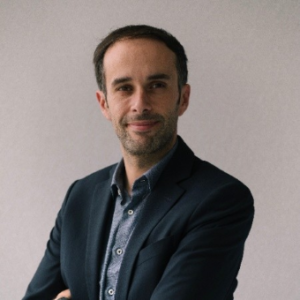AIDA, an effective solution to manage risk management in companies and improve corporate performance

AIDA is a CMU Collaborative Large Scale project launched in 2020 with the main goal to improve the RAID platform used by Mobileum for integrated risk management in companies. To achieve this objective, the Portuguese ICT Company that is currently the leading provider of Telecom analytics for roaming, security and risk management joined INESC TEC, Universidade de Coimbra and the Computer Science Department at Carnegie Mellon University (CMU) to apply to the CMU Portugal Call for Large Scale Collaborative Research Projects (LSCRPs).
After a thorough evaluation process, AIDA was one of the 12 research projects selected for 3 years’ funding, but the project will expectably end before that.
“The evolution of the Telecom world made us rethink the approach in terms of the analytics strategy.” (Carlos Martins)

According to Carlos Martins, Head of Engineering at Mobileum, “the evolution of the Telecom world made us rethink the approach in terms of the analytics strategy. With the evolution of the Telecom business, there was a significant shift from a process to a functional orientation. Business is now fully data-driven in a streamed approach with a decoupled analysis from any data aggregation and demanding schemas-on-read instead of pre-defined schemas.”
The RAID platform handles enterprises’ entire risk management lifecycle and is currently applied worldwide to address, among others, revenue assurance, business assurance, and fraud management. The AIDA project’s overarching goal is to conceive a new version of the RAID platform by moving some of the pipeline phases to the edge of the system and taking advantage of 5G. Today, the platform is fully deployed in physically collocated servers, either on-premises or in the cloud. With AIDA, data collection, monitoring, and even actuation phases should be prepared to run in diverse hardware architectures outside the platform’s owner’s physical or even administrative control.
According to Carlos Martins “5G will promote a massive growth of data. Part of the 5G protocol also permits multi-access edge computing (MEC), enabling wireless operators to offer a high level of automation from the distributed ML and AI architecture at the network edge. Fraud detection is nowadays mostly addressed by ML and AI, and AIDA will help RAID be ready to do the fraud detection at the edge level, ensuring quicker detection time and minimizing data transfer to a central cloud, while ensuring full data encryption on any of the needed data transfer.”
Thanks to this newest version of the platform, companies will be able to collect and monitor data in a highly flexible way, with real-time guarantees, security and reliability by leveraging the increasing edge computing capacity made available by the IoT and the imminent large-scale deployment of 5G cellular technology.

The goal of the project is clear as is the expected impact on Mobileum business: “From a qualitative point of view, we expect to bring a higher ROI for our customers by being able to address new fraud detections and corresponding preventive actions. From a quantitative point of view, we expect to acquire new customers that are now doing the path to 5G, and that this project will enable us to address it with strong competitive advantages” says Carlos Martins.

Christos Faloutsos, Professor at CMU’s Computer Science Department, leads the research team in Pittsburgh and supervised the work done during this first year. He adds that “at CMU we managed to get access to (anonymized) phone records. From here we have already started developing algorithms to find patterns, anomalies, and fraudsters. My group is working on the algorithms and visualization aspects of mining such huge amounts of complex data (who-calls-whom-and-when). There are fascinating challenges, both from the machine learning point of view (like “do textbook assumptions of Gaussianity independence hold?”), from the visualization point of view (“how to plot a graph with millions of nodes”), and from the systems point of view (how to store, and access, these large datasets).”
Regarding the benefits of the collaboration established under AIDA, which involves Mobileum as promoter and researchers both in Portugal and CMU, Faloutsos is confident in stating that “there are immense benefits, for both sides. My group and I are discovering unexpected patterns in the real graphs, which helps us design better algorithms. My students get hands-on experience with real data, with all the surprises that textbooks don’t mention (missing values, occasionally wrong labels, deviation from typical distributions like the Gaussian one, and many more). The domain-expertise that Mobileum provides, is extremely valuable: it helps us understand what are the most important business problems that we, scientists, should focus on, and helps us translate them into mathematical problems that we can subsequently solve. Conversely, Mobileum is benefiting from state-of-the-art algorithms in the literature (several of which are from CMU), and they will be the first to benefit from the new algorithms that my group is developing.”
On the Portuguese side, Carlos Martins also has high expectations for this research partnership “we expect a lot from these world-class researchers. We followed the work of some of the CMU colleagues in the last years and having now the chance to work daily with them is really beneficial to both – we learn from new techniques while challenging CMU with new use cases on Telecom Fraud. At the end of the day, I believe that both parties are learning a lot from each other.”
“The marriage between scientific research and production-grade technology is always the biggest challenge” (Carlos Martins)
Even if the project’s future seems bright, there are always some challenges to overcome. “The marriage between scientific research and production-grade technology is always the biggest challenge, so there are some technologies/techniques that still haven’t prove it’s feasibility in a real-world scenario. Additionally, data is the new oil, and having real-world data in a scientific approach is sometimes a challenge. Synthetic datasets are being explored, still, real-world data will be the key driver for project acceptance”, states Carlos Martins.
By the end of the project in 2022, the objective is to deploy a complete prototype of AIDA in a realistic scenario in telecommunication services. According to Carlos Martins, this prototype will be “a very resilient and flexible system that will detect Fraud in a Multi Edge Cloud architecture, dazzling the users with great accuracy and finding new Fraud patterns that were not possible before – we have great expectations on the results of new explored techniques like GNNs and Metric Forensics.”
After the end of the AIDA project, and based on the success of this partnership, Christos Faloutsos leaves the door widely open for future collaborations “the collaboration has been extremely productive and pleasant, with weekly remote meeting with Mobileum (Pedro Fidalgo and his group) and the main advantages as mentioned before. My group and I would be delighted to maintain these collaborations for as long as possible.”
More on the AIDA project at: https://www.cmuportugal.org/large-scale-collaborative-research-projects/aida/
By CMU Portugal Program
© AIDA, 2023
